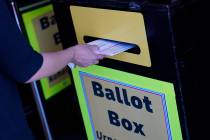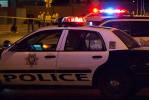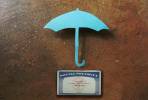Free association
On Monday, called upon to overturn yet another piece of "inclusionary" nonsense from the 9th U.S. Circuit Court of Appeals, the U.S. Supreme Court will consider whether a public university can force a Christian student group to accept as voting members students who explicitly reject core tenets of the group's faith.
Oh, what a tangled web we weave ...
The case is Christian Legal Society v. Martinez. At the University of California's Hastings College of the Law in San Francisco, the Christian Legal Society is an evangelical Christian student group that accepts all students at its functions but requires voting members and leaders to sign a statement of faith. The statement endorses "biblical principles of sexual morality," and makes clear that a student who "advocates or unrepentantly engages in sexual conduct outside of marriage between a man and a woman" isn't eligible to vote for or become a group leader.
If they were, what would be the point of having the group?
The group's petition to the court explains: "A person's mere experience of same-sex or opposite-sex sexual attraction does not determine his or her eligibility for leadership or voting membership." CLS does not prohibit gay students from voting membership or leadership positions -- providing the gay student shares CLS's view of homosexuality.
The distinction may seem a bit convoluted, but so is case law on the First Amendment's freedom of association. The court has held, for instance, that a Jaycees chapter could not continue excluding women from membership, since the group could not articulate any specific way in which admitting women would be at war with the group's purposes.
On the other hand, the case most closely on point is Boy Scouts of America v. Dale (2000), in which the Supreme Court ruled that the private organization had the right, under the Constitution, to discriminate in its hiring policy because the organization stood primarily for certain values.
But back to the oh-so-politically correct Hastings College of Law. In order to gain official recognition, funding and equal access to campus, every group is required to allow all students to become voting members, even if they fundamentally disagree with the group's viewpoints. Applying this rule, Hastings denied CLS recognition.
Now, the best solution would be for colleges to stop extracting "student fees" and then setting one-size-fits-all standards for who is funded and allowed to meet on campus.
But so long as the college is in the business of "recognizing" student groups, the potential for mischief in such a policy -- now endorsed by the 9th Circuit, which has jurisdiction over Nevada -- is obvious. What if virulently anti-Semitic persons insisted on flooding the meetings of some Jewish campus group, using this policy of "everyone gets to vote" to elect themselves as officers, or vote to disband the group?
Or, to use the example of Harvey Silverglate, a co-founder of the Foundation for Individual Rights in Education, which has filed an amicus brief on behalf of the CLS, "Would gay and lesbian student groups really want to be forced to accept as voting members the parishioners of the Westboro Baptist Church, who have for years picketed the funerals of gay murder victims ...?
"Following the logic of the Ninth Circuit, the most virulently anti-gay student (or any number of such students) could not be refused a vote. ... If the Supreme Court decides that public colleges may deny religious groups the same rights as any other group on campus, the result will be less, not more, genuine diversity on campus."
Amen, brothers.























